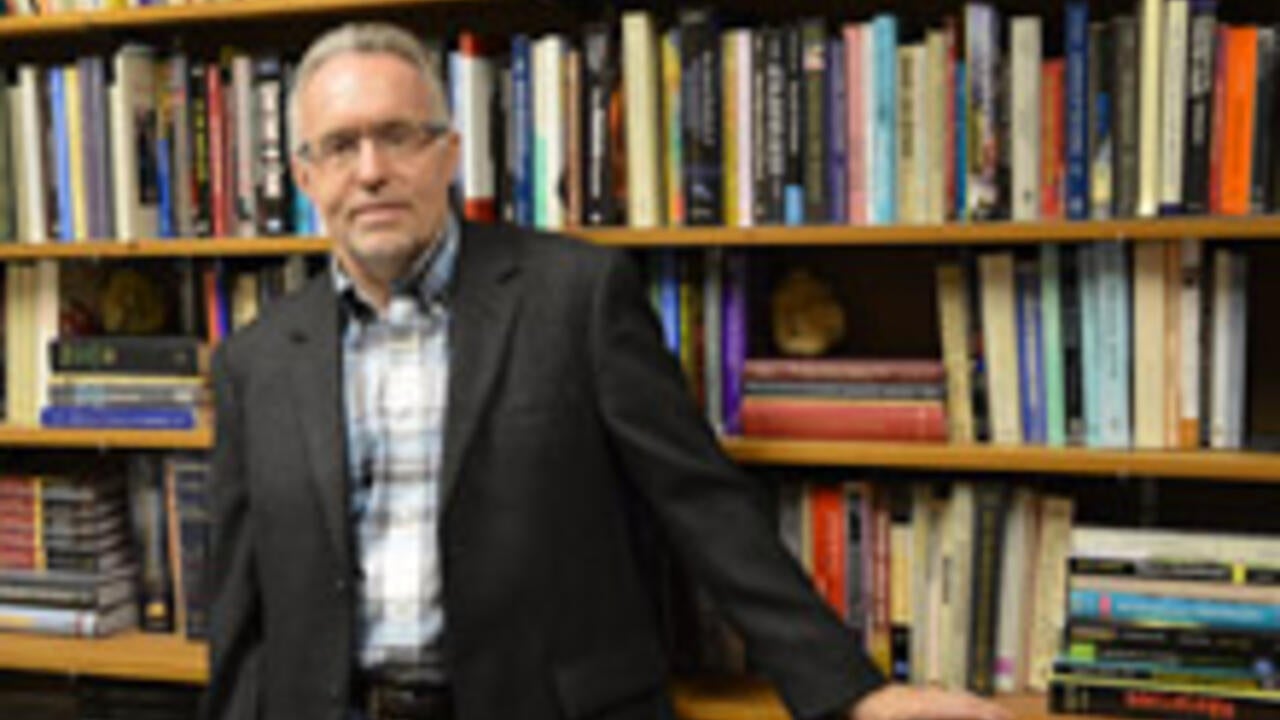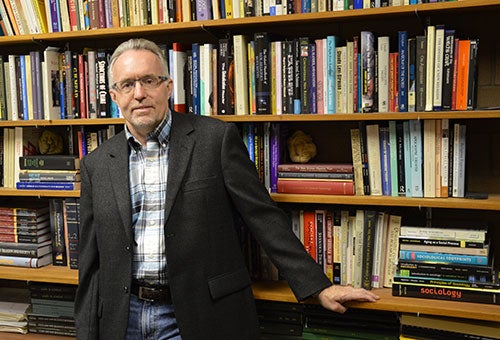
How does a Canadian teen turn into a terrorist?
Homegrown terrorists are “remarkably ordinary,” says terrorism scholar at Waterloo

Homegrown terrorists are “remarkably ordinary,” says terrorism scholar at Waterloo
By Christian Aagaard Marketing and Strategic Communications
Lorne Dawson finds himself wrestling with one of the biggest questions facing Canadians these days: How does a kid who grows up in Canada become a terrorist?
“Overwhelmingly, the people we are dealing with are what the New York City Police Department has identified as ‘remarkably ordinary,’ ” says Dawson, a professor in the Department of Sociology and Legal Studies at the University of Waterloo. “These are ordinary people, by most outward markers, who are doing extraordinary things.
"We have to look not at the people so much as the process around them.’’
Dawson is one of the few terrorism scholars in Canada, a field of study he came to by way of the parallels with his other area of expertise — cults and new religious movements.
In both cases, converts tend to be young, smart and emotionally adrift, he says. The turn to new religions, like the turn to radical Islamist views, is rooted in identity struggles that seem to go beyond what most teenagers experience. As a result their relationships with peers and parents tend to become awkward and unfulfilling.
For the children of Muslim immigrants there is a further issue. They are torn between trying to fit in with the liberal culture of their Canadian peers and the traditional social and religious conventions of their households.
Into this confusion comes the seeming clarity of the jihadist ideology, Dawson says.
“It tells the kid, ‘You’re feeling worked-up perturbed, strange, upset and angry. Here’s why. Here’s what you can do about it. Here are the bad guys behind why you’re feeling so crappy. And here are the good guys you can identify with, and start to feel great with.’ ”
Not every young person in these circumstances becomes radicalized, and not every radicalized young person becomes violent. Radicalization, he adds, usually needs what sociologists call a “cognitive opening,” a period when a vulnerable young person meets a charismatic proponent online or in person.
Moving the recruit to violent action requires further grooming by the radical group.
Dawson’s work earned him recognition in Waterloo’s 2014 annual report. Media outlets regularly call him for insight into domestic attacks, such as the ones in October that killed Canadian soldiers Patrice Vincent and Nathan Cirillo.
Since 2008, federal agencies have been booking him for panels and conferences dealing with radicalization and homegrown terrorism. He is one of the founding directors of the Canadian Network for Research on Terrorism, Security and Society (TSAS).
And he wants to see Canada establish its graduate program in terrorism and security studies. Dawson wonders whether it could land in Waterloo Region as a partnership involving the University of Waterloo, Wilfrid Laurier University and the Balsillie School of International Affairs.
Good scholarship is essential, he argues, to understanding and countering homegrown terrorism. “Moral repugnance” doesn’t do much, he adds, and harsh prison sentences may deepen rather than relieve radical beliefs.
But that raises an ethical debate for academics: should research include conversing with terrorists in Canadian jails and radicalized youth fighting abroad?
Dawson believes so.
“How are we ever going to be able to create prevention and de-radicalization programs if we don’t have first-hand, from-the-horse’s-mouth knowledge of why they did what they did,” he says.
This winter, Dawson will teach the University of Waterloo’s first course on terrorism. He is thinking about starting the class with a YouTube video recalling 25 of the world’s worst terrorist attacks dating back to the Roman Empire.
It shows terrorism as episodic. The current model, however, is disturbingly different, he says. Anger and ideology move rapidly in the Internet Age.
“We’ve had a steady state of terrorism since 1996,’’ Dawson says of bombings and killings tied to conflict in the Middle East. “It is not waning. The data show it’s growing.”

Read more
To meet our AI ambitions, we’ll need to lean upon Canada’s unique strengths

Read more
Researchers awarded funding to investigate ecology, climate change, repatriation, health and well-being through cultural and historical lens

Read more
Meet five exceptional Waterloo graduate students crossing the convocation stage as Class of 2025 valedictorians
The University of Waterloo acknowledges that much of our work takes place on the traditional territory of the Neutral, Anishinaabeg, and Haudenosaunee peoples. Our main campus is situated on the Haldimand Tract, the land granted to the Six Nations that includes six miles on each side of the Grand River. Our active work toward reconciliation takes place across our campuses through research, learning, teaching, and community building, and is co-ordinated within the Office of Indigenous Relations.